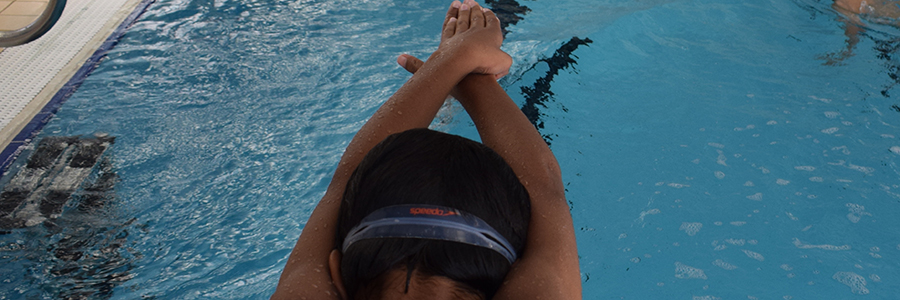
27 Sep The Balance of Swimming and School
Written by Becca Hill – Deputy Manager
From a young age I always had a passion for swimming, having lived in a hot country, it was the most popular pass time in the heat, so learning to swim was a necessity. At the age of 4 I started swimming lessons and from then on, I was always in the water! When I got a little bit older I started to take my swimming more seriously and then after moving back to the UK, I swam competitively for the local Swimming club in High Wycombe.
I wanted to push myself in swimming and begin competing, this meant the training increased. To keep my school work at the standard I wanted it to be and ensure I got good grades, I had to be organised and improve my time management in order to complete my school work and remain punctual for training. This has paid off, throughout my school career all the way up to year 13. I kept organised and achieved what I wanted.
Training for swimming isn’t like training for football or rugby, the level you are at depicts how many hours you swim a week. I had to swim every day at one point, both early in the morning and later in the evening. It meant I needed to have discipline in my sleeping pattern so I could concentrate at school and have enough energy to get through the day. It also showed commitment, getting up at 5am to go swimming! You had to go more often to improve your stamina and muscle memory (as discussed in a different blog post).
The commitment swimming has taught me has helped me as I have gotten older and taken more responsibility. Whilst my passion for swimming and the time constraints that resulted from this helped me focus on my school work and do the best I could, it has also helped me in my career opportunities. Commitment and dedication to my role, in addition to my love of swimming has encouraged me to take new opportunities, perform to the best of my abilities and exceed expectations.
The balance of school and swimming became difficult the higher up in school I got, the hardest years for me were Year 10-13, because the grades help you with your future. My coach was understanding and always said school came first, swimming was a hobby that I worked hard at and I had to do the same at school to give myself a good future. The drive and motivation I had for swimming helped me stay motivated in school to achieve the best I could, and once I completed my education, these qualities remained with me throughout my job positions.
Balancing school work and a competitive swimming career is not easy, but if you have a passion for swimming and are determined to make it work, the dedication and commitment will pay off throughout school and working life.


